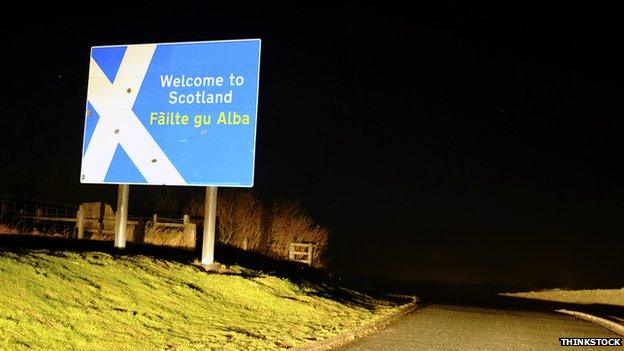Scottish independence: Examining business on the border
- Published
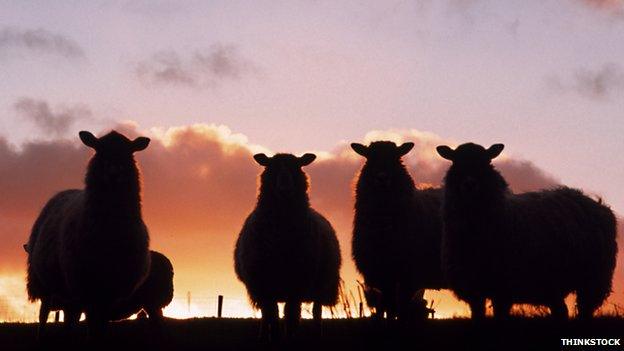
Sheep farmers on both sides of the border are among those keeping an eye on the referendum debate
In the week when the official campaigns start ahead of the independence referendum, BBC Breakfast has been on the road looking at what the business community think of the debate.
On day four, the team crossed the border - just - back into England, to visit a Scottish and English farmers' market.
Through a network of red pens, hundreds of sheep weave their way from farm vehicle to the auction room.
From bright-eyed spring lambs, to the more straggly-looking ewes from Cumbrian fells, thousands of them pass through Longtown farmers' mart every year - it is the largest sheep market in Europe.
We visited because this is a business watching the run-up to the Scottish referendum keenly.
Half the stock passing through come from the Scottish borders - from Dumfriesshire and beyond. The other half are from the north of England, Cumbria and Northumberland.
Longtown itself is just a few miles south of Gretna and a few miles north of Carlisle.
Any change that is coming, regardless of the outcome, is going to affect those working here.
Business is good for British agriculture. And it's a sector that contributes £220bn to our economy, feeding the nation and even those further afield.
The managing director at Longtown, Trevor Hebdon, says the referendum is having a big impact, as some of the farmers he works with even straddle the border itself.
"Here we're talking about the referendum every week because it means so much about how they trade across the border," he said.
"And right now trade is strong for UK and export markets."
The farmers at Longtown are not the only ones keeping an eye on the debate.
Nick Stewardson is managing director of Gretna Bakery - a Scottish business he founded and runs from his home in Carlisle.
His small chain of bakers are dotted across the local area, serving pies and cakes to Scottish and English customers. It's a job he's loved doing for many years.
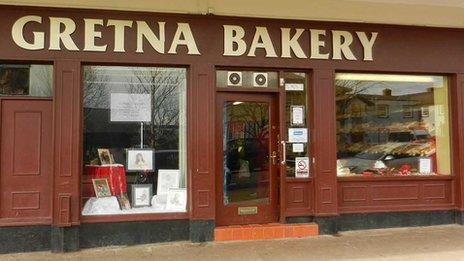
The Gretna Bakery boss says he crosses the border several times a day
We joined him on his journey across the border to chat to him about his thoughts on independence.
"I'm criss-crossing the border six or seven times a day - it's not an issue - you don't even know you're doing it," he explained.
But there are many question marks, for Nick, over what his future work life could entail.
He added: "We could end up with exchange rates - we don't have these problems at the moment so why create them?"
'No border controls'
But his fears aren't shared by another "international" businessman.
Ivan McKee runs manufacturing sites in England, Scotland and Eastern Europe. He believes that tapping into all that is positive about the Scottish economy will give businesses a better chance to grow, greater freedom from Westminster and a stronger identity when expanding overseas.
And he dismisses Nick's worries.
"We don't expect any problems at all, we'll have the same currency and there will be no border controls," he said.
"This is about opportunity to grow the Scottish economy and businesses both sides of the border will benefit from that."
Both these responses remain speculation. The details that are not known about independence remain the most powerful tools of negotiation.
Businesses will have to form their own decisions as to how it will work for them.
But in the English business community there does seem to be real worry.
Scotland would have the capacity to cut corporation tax and offer incentives to big firms when it comes to developing sites in the region.
There are also promises that an independent Scotland could cut Air Passenger Duty, making it cheaper to fly from Scottish airports than those in the north of England, which may leave those airports at a disadvantage when it comes to offering customers the value they so crave.
BBC North East has carried out research into how firms in their area feel about this.
Mark Denten, BBC political correspondent in the North East, said: "Some businesses have told me the independence vote is heads, Scotland wins and tails, North East and Cumbria loses."
And you can catch the final part of BBC Breakfast's special series on the Scottish economy, live from Glasgow Velodrome, on BBC One on Friday from 06:00.
- Published4 June 2014
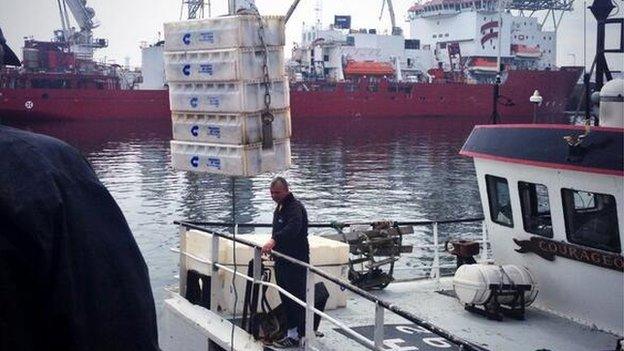
- Published3 June 2014
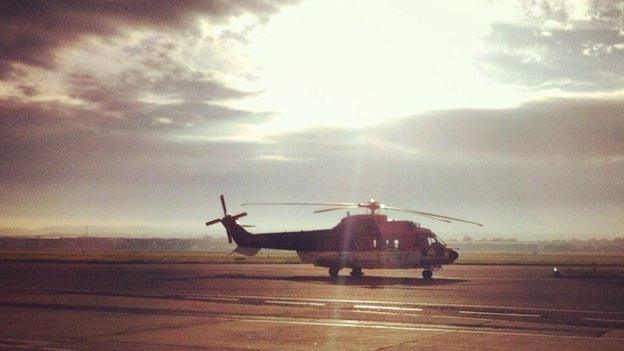
- Published2 June 2014
